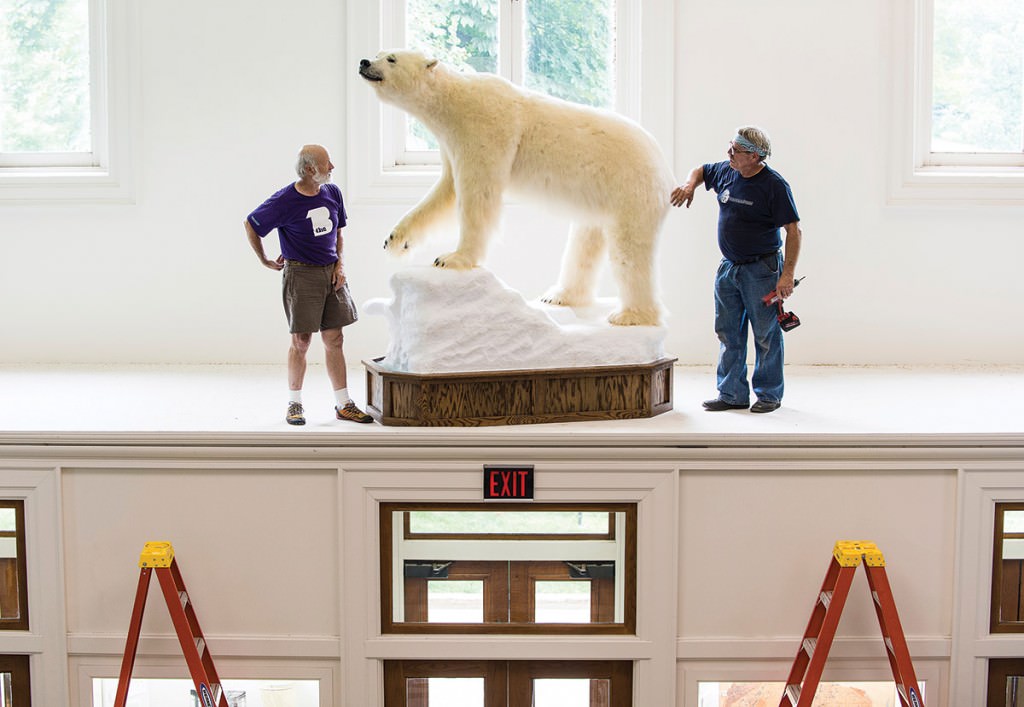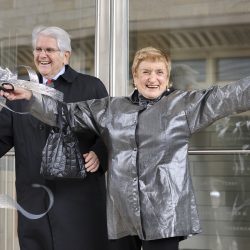7 Unusual Gifts
To thank the university that launched you into the real world, sometimes writing a check doesn’t feel like enough.
That was certainly the case for Tom Koehler MS’96, who gave his 40-acre yak farm to UW–Madison in 2012. The aptly named “Green Bay Yakkers” property in Door County will eventually be sold, with proceeds benefiting the School of Medicine and Public Health.
Gifts come in all shapes and sizes from alumni who want to give back to their alma mater, says Scott McKinney JD’98, chief operating officer of the UW Foundation. “They want to put it toward something that was very meaningful to them: the university,” McKinney says.
Of course, there are gifts just too unusual to accept. McKinney recalls a fishing boat, timeshares, and a coin collection, among others. Most often, though, the UW can find ways to use such gifts, no matter how unconventional, on campus. Here are some — from a very long list — that we found particularly fascinating.
Polar bear
Legally hunted and imported by a private citizen years ago, the 12-foot-tall taxidermic bear now perches atop a foyer in Birge Hall and belongs to the UW Zoological Museum’s permanent collection.
Nurses’ military uniforms
Decades after military nurses tended to wounded World War II soldiers, the UW’s School of Nursing displays a few of the nurses’ uniforms during special events. Former faculty members and alumni of the school donated the uniforms, which they wore while serving in the Army Nurse Corps and the Navy.
Hair wreaths
Of the 14 examples of hair art in the School of Human Ecology’s Helen Louise Allen Textile Collection, one was owned by Allen herself — a small tribute to the overtly sentimental styles of the 19th century, when it was common for hair to be exchanged as a gift.
Leaded glass
The bright yellow shard of glass is a fragment from a window at the Hanford Site, a nuclear production complex in Washington State that made plutonium for the Manhattan Project during the mid–20th century. The shard was donated to the university in 2013 by the Friends of the Geology Museum.
Brains
Donations to the Wisconsin Brain Donor Program, part of a research center at the School of Medicine and Public Health, provide an important look at the differences between cognitively healthy adults and those who suffered from impairments such as Alzheimer’s disease.
Thai Pavilion
The 30-foot-high ornate structure, donated to the university by the government of Thailand and the Thai chapter of the Wisconsin Alumni Association, was constructed in its home country, carefully taken apart for shipping to Madison in 2001, and reassembled at Madison’s Olbrich Botanical Gardens.
Edison’s gramophone
Although inventor Thomas Edison never set foot on campus, he donated a gramophone to physics professor Benjamin Snow in 1919 after hearing that the department would be opening a museum. Today, the piece serves as an occasional teaching tool for physics students — and it still plays records.
Listen to a recording of “My Wild Irish Rose” played on Edison’s gramophone
Published in the Winter 2017 issue



Comments
No comments posted yet.